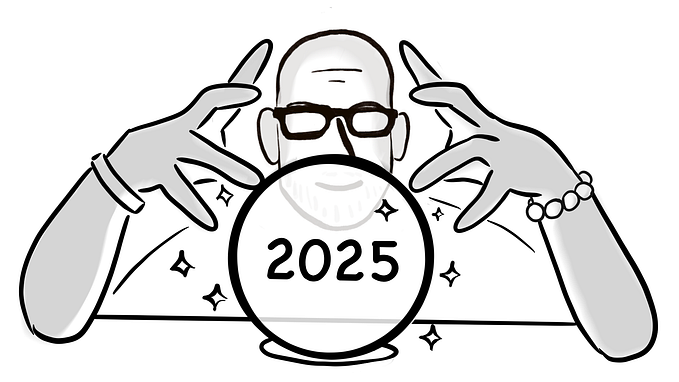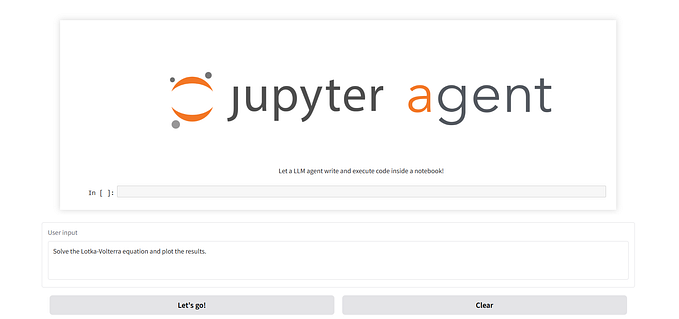
My Wishful Thinking for AI in 2021
A few personal thoughts considering the field of AI for the next year and my own wishes for learning
Winter is coming… At least in Norway where I live. October may seem a bit early to make a wishlist, however I thought this would be a good time. I am finishing up 500 days of writing about artificial intelligence every day, and it is time to look forward. Be aware that this is a blog article, and less focused on critical discussion or informative exploration of new topics than some of my other articles.
If you would take the time to share your wishlist for AI in the response (with a comment) that would make me very happy.
I cannot make a wishlist for anyone else than myself, so here it goes and in no particular order:
- More focus on responsibility in a wider perspective in the AI industry when it comes to the climate crisis and responsible use of technology. That is an immediate concern that needs to be supported by a focus on sustainable development goals by leading AI companies.
- A clear overview of how you can choose the right place to store and run data that is more viable in terms of footprint beyond only energy usage, although getting that one criteria right would help too.
- Personally, I want to do more projects within the field of artificial intelligence and get involved in research groups locally in Norway to a greater extent. I would very much like to drift between practical research groups, programming and policy sandbox.
- Build a useful dataset focused on sustainability in the technology sector. Considering how a dataset can be used by people who work within the technology industry — with AI as a main concern.
- Become practical about interdisciplinary collaboration. Finding specific ways to collaborate — thinking about how different teams work together or what kind of AI services or products that I would like to get involved with to a greater extent.
- Contribute to writing articles in local papers addressing implementations of artificial intelligence or informing about specific use cases that is helpful for society.
- Growing the community of social scientists interested in programming in Oslo. Figuring out how we could contribute to processes of auditing or evaluating algorithms from a social science perspective that would be respectful of the work done by those who developed different projects.
After almost 500 days of writing about artificial intelligence I feel very grateful to have some of my previous wishes fulfilled.
Lines in the sand and my previous personal wishes in 2019–2020
Goals and wishes are not exactly the same. Still, I find it interesting to look back at article number 20 where I had some thoughts about setting myself goals. I framed these as goals not wishes, but I still look back at these:
“Short-term goals:
- Sparking an interest for discussing society and artificial intelligence. Recorded interviews with five people about this topic the next 20 days.
- Increasing skills related to my academic interest such as writing and becoming more comfortable with text. Presenting my findings in a structured manner that provides for a good reading experience. Find the first writing competition in which I can participate.
Long-term goals:
- Contributing to the development of Norway’s national strategy for artificial intelligence within the next 100 days. Sending a collection of my texts or focusing for several days on specific suggestions. Contributing in discussions at events in Oslo etc.
- Write my first book about artificial intelligence within the next 250 days. It does not have to be extensive or complex, rather as a discussion point introducing thoughts related to social science and AI.
- Write an article for a large established media publication online within the next 500 days (1M readers+) as a contributor. Examples could be Fast Company, Forbes, HuffPost, MIT Technology Review, TechCrunch, Wired etc.”
Did I reach any of these?
Yes.
Did I reach all?
No.
- I did not compete in a writing competition.
- I did not write for a large established media publication.
However, I reached some of my goals.
- Spark an interest for many of my friends and others who read some of my articles.
- Increase my skills related to my academic interests.
- Contribute to the development of the Norwegian AI strategy through a few meetings where I was present for discussions.
- Wrote two books about artificial intelligence.
In addition to this there was so much more.
I wrote about some of this in my 200 days of AI.
200 Days of Artificial Intelligence
Writing One New Article About AI Every Day for 200 days
medium.com
- Speak at several conference and participate in panel debates.
- Do a TEDx talk about AI and the Climate Crisis.
- Joined a digital ethics council.
From talking and writing to doing
One big change was that I started a MSc in Social Data Science at the University of Copenhagen. This means I am programming every day of the week and learning rather much about both the practical aspects of programming and theories within social science broadly. I was also fortunate to get to test out some of my data skills with UNDP.
After 500 days of AI is done I wish to learn more!
I wish I can contribute more. I want to make a difference for those working in the technology industry, and I wish to be less annoying and more helpful.
After 500 days of AI there is a lot I want to do.
First in the short-term I look forward to more time with my wife, family and friends — although I am unsure if I will write any less.
I will call up my grandmother in Iceland more. She is one of the warmest people there, in a very cold country.
It is perhaps too easy to say that I will become a better person or do better and so on so forth.
I may focus more on writing code and less on writing articles. Yet, I will continue writing and hopefully more quality than quantity. Clearly, not every single text you write if you have to publish every single day for 500 days will be anything you are happy with. I have received both positive and negative comments.
Writing a text that is valuable to the reader is important.
At the same time text is thinking out loud to me, and I learn so much from every article and every evening spent reading up on a new topic.
I wish to continue learning from friends who comment my articles when I meet them, or tell me what they care about relating to artificial intelligence.
I wish to join a community of writers to a greater extent or create a community of writers on AI & Society here in Oslo.
Wishful thinking on AI
Then again, this may be wishful thinking.
It is easy to inscribe too much into one goal or ascribe it too much value.
It is clear to me that artificial intelligence is influencing society in rapid ways, yet it is easy to become confused or overestimate what one wish turned into a goal can mean.
Wishful thinking is the formation of beliefs based on what might be pleasing to imagine, rather than on evidence, rationality, or reality.
Many contemporary applications of AI are wishful thinking — based on what the inscribed/programmer/stakeholder wants or imagines to be pleasing instead of reality.
Equally wondrous, disastrous and wishful — artificial intelligence.
I heard my endeavour to write 500 days about AI described as wishful thinking.
I doubted that I could do it almost every week for the first 200–300 days.
Then it became part of my everyday life.
I remember one night coming back from a wedding party in a foreign country remembering that I had yet to write an article for that day. I wrote the article (somewhat drunk) and edited it the day after sober. Admittedly, I cannot remember what specific day that was, and perhaps that is for the best.
My wishful thinking has taken me some wonderful places.
It brought me here to you as a writer, as a voice in the void.
Black typeface on a white screen, as you explore your thoughts.
I wish you wishful thinking — to believe in your thoughts.
Thoughts can turn into words and take you places you never thought you would end up going.
Maybe into the field of artificial intelligence?
This is #500daysofAI and you are reading article 498. I am writing one new article about or related to artificial intelligence every day for 500 days.










